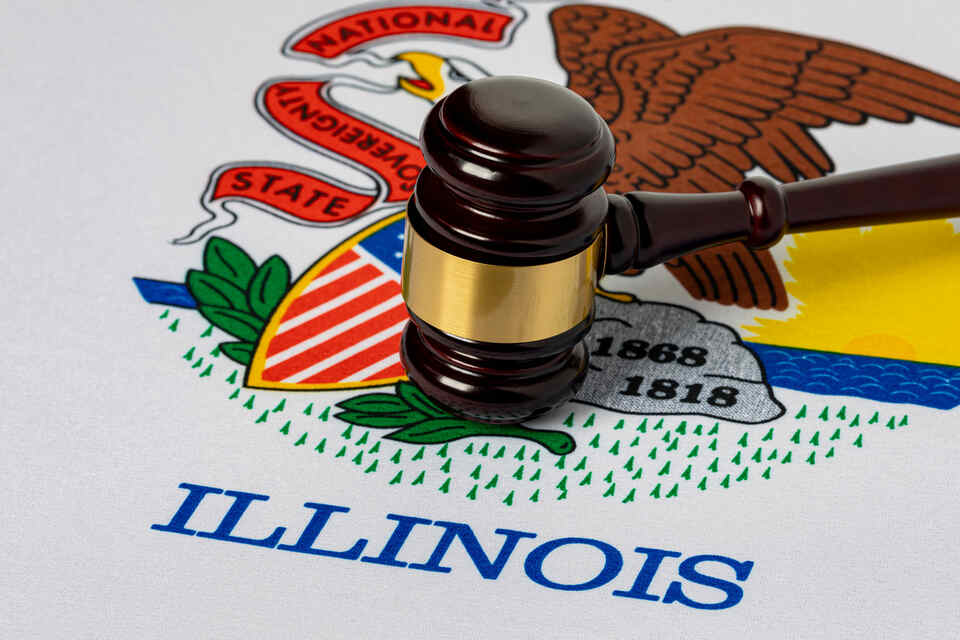
Illinois is moving to tighten its laws around unlicensed gambling, and online sweepstakes platforms are now part of the conversation.
Senate Bill 1705, introduced by Senator Bill Cunningham, would update the state’s Criminal Code to expand what qualifies as a “gambling device.” That includes any digital system used to run sweepstakes, contests, or games of chance that pay out prizes, even if there’s no obvious casino setup involved.
It’s the latest step in the state’s effort to close off legal grey zones in the digital gambling space. The bill has been referred to the Senate Executive Committee, marking its next step in the legislative process.
Key Provisions of SB 1705
Right now, Illinois law makes room for certain types of games — like skill-based contests or sweepstakes that don’t require payment to enter. But SB 1705 would start closing those doors.
Here’s what the bill actually changes:
- Expands the definition of a gambling device to include any electronic system that runs sweepstakes, contests, or chance-based games where players can win something of value.
- Removes current exemptions if the game is played online or through an unauthorized device, even if no money is technically required to participate.
- Makes it a Class 4 felony to operate one of these platforms — which could mean up to three years in prison, plus fines, for violators.
For comparison: New York and Maryland are pursuing similar bans, but few states are going as far as Illinois in treating sweepstakes-style gaming as a criminal offense. If passed, SB 1705 would put Illinois at the stricter end of the national spectrum.
Regulatory Actions and Broader Legislative Efforts
Even as SB 1705 makes its way through the Senate, Illinois regulators aren’t sitting around waiting.
Back in February, the Illinois Gaming Board (IGB), working with the Attorney General’s office, sent 11 cease-and-desist letters to online operators accused of offering unlicensed sports betting in the state.
And just weeks later, they expanded their focus. New notices went out to Kalshi, Robinhood, and Crypto.com, accusing all three of running unauthorized sports prediction markets — a type of betting the IGB says falls squarely outside what’s allowed under state law.
Senator Cunningham’s push doesn’t stop with SB 1705 — it’s part of a wider effort to reshape how gambling is handled in Illinois. Beyond the sweepstakes bill, he’s also backing:
- A proposal to legalize and regulate daily fantasy sports, and
- Two bills that would put tighter rules on sportsbooks, including limits on promotional offers and how betting data is used.
Together, these bills show a clear intent: not just to respond to what's happening in the market, but to take control of it.
Illinois Isn’t Alone — Other States Are Making Moves Too
SB 1705 is part of a bigger trend. Across the country, lawmakers are stepping in to regulate, or outright ban sweepstakes-style gambling models that have long operated in a legal grey zone. Here's how other states are handling it:
- New York: Senate Bill 5935 would shut down online sweepstakes platforms and clamp down on revenue from unauthorized gambling markets. It’s already cleared committee and is headed to a full Senate vote, making one of the most aggressive moves yet.
- Maryland: SB 860 passed the Senate unanimously and would ban sweepstakes-style games altogether. Lawmakers there are also pushing for tough penalties on any operators that don’t comply.
- Connecticut: SB 1235 proposes a ban on any real or simulated casino gaming offered by sweepstakes companies. The bill passed the General Law Committee with unanimous support, showing just how serious the state is about tightening control.
- New Jersey: Lawmakers introduced S4109 and S4282 — twin bills that would classify sweepstakes casinos as part of the state’s internet gaming industry. That means operators would need to get licensed, pay taxes, and follow strict oversight rules.
- Mississippi: SB 2510 aimed to ban sweepstakes casinos and legalize mobile sports betting. The bill passed both chambers, but fell apart late after a fight over sports betting language derailed it.
Industry Response — and What Comes Next
The push for tougher rules on sweepstakes and digital gambling isn’t just a legal move, it’s part of a much bigger shift in how states are thinking about online games that blur the line between entertainment and gambling.
Industry groups like the Social and Promotional Games Association (SPGA) have warned that overly broad laws could backfire. Their concern is that if lawmakers don’t draw clear lines, these bills could end up pulling in legit businesses too like loyalty rewards programs, branded sweepstakes, and even some in-app game features.
Legal experts are also paying close attention. They argue that the very fact new laws are being written suggests existing ones weren’t clear or enforceable enough to begin with. That could become a central argument if operators decide to challenge these bans in court.
Bottom line: The rules are shifting fast. And whether you’re an operator, a developer, or a regulator, this is a space you’ll want to watch closely, because what happens in Illinois could easily be replicated elsewhere.
